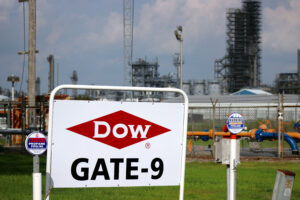
Title: OSHA Imposes Fines on BioLab for Safety Breaches After Toxic Chemical Blaze at Georgia Facility
Following a major chemical incident at BioLab’s Conyers, Georgia facility in September 2024, the United States Occupational Safety and Health Administration (OSHA) has levied fines amounting to nearly $61,500 on the pool and spa chemical producer. The agency’s investigation found that hazardous materials were improperly stored, which significantly contributed to a toxic chemical reaction and the subsequent release that affected the lives of tens of thousands of nearby residents.
OSHA’s official report indicates that the incident was initiated when water from rooftop sprinklers—set off due to a fire—came into contact with trichloroisocyanuric acid (TCCA), a chlorine-based disinfectant used for pool sanitization. This interaction released a dangerous cloud of chemicals, including chlorine gas and chloramines, into the atmosphere. The ensuing plume lasted for several days, necessitating the evacuation of around 17,000 individuals and shelter-in-place orders for about 90,000 more throughout Rockdale County.
Summary of Safety Violations
OSHA identified BioLab for four serious violations and two other-than-serious violations related to workplace safety regulations. Although the specific details of each violation have not been thoroughly disclosed, OSHA’s designation of “serious violations” implies that the company did not fulfill essential requirements needed to avert a significant risk of death or severe physical harm. These deficiencies likely pertain to the safe storage, handling, or containment practices for hazardous chemicals.
Per OSHA regulations, BioLab now has the choice to accept the citations and pay the fines or to formally dispute the findings. The company has not yet released any statements regarding whether it plans to contest the ruling.
Ongoing Investigations and Operational Effects
Beyond OSHA’s enforcement actions, a broader investigation is currently in progress under the jurisdiction of the U.S. Chemical Safety and Hazard Investigation Board (CSB). The CSB is a federal body that investigates industrial chemical incidents to identify root causes and suggest improvements to avert future occurrences.
BioLab’s Conyers facility has remained partially shut down since the incident. In early 2025, the company purportedly offered voluntary severance packages to affected employees, reflecting uncertainty about the timeline for fully resuming operations. These shutdowns and personnel adjustments form part of BioLab’s larger recovery strategy as it addresses both regulatory scrutiny and reputational harm following the incident.
Environmental and Public Health Issues
The release of chemicals during the BioLab fire raises significant concerns regarding the environmental and public health repercussions of such industrial accidents. Chlorine and chloramine gases are known to irritate the respiratory system, with prolonged exposure potentially causing damage to the eyes, throat, and lungs. Although no fatalities were reported as a direct consequence of the incident, the need to evacuate tens of thousands underscores the seriousness of the situation.
Emergency responders and safety experts have emphasized the necessity of proper storage protocols for reactive chemicals like TCCA, particularly in facilities where fire suppression systems might unintentionally introduce water to dry chemical substances.
Regulatory Consequences
The BioLab incident serves as a broader caution for the chemical manufacturing sector concerning the hazards associated with chemical mismanagement and antiquated safety practices. The fines imposed by OSHA could act as a deterrent for similar facilities, encouraging enhanced training, more stringent safety audits, and a reevaluation of fire suppression strategies when hazardous materials are present.
Conclusion
Although OSHA’s $61,500 fine may seem modest considering the magnitude of the incident and the mass evacuations it incited, it represents a crucial initial step by federal regulators in holding companies responsible for severe chemical safety breaches. The final outcome of the ongoing investigation by the U.S. Chemical Safety Board might initiate further actions or regulatory reforms.
For the time being, the BioLab case serves as a stark reminder of the potentially devastating consequences that can emerge from neglected safety protocols within the chemical industry—and the urgent need for effective, proactive risk management to protect both workers and communities.